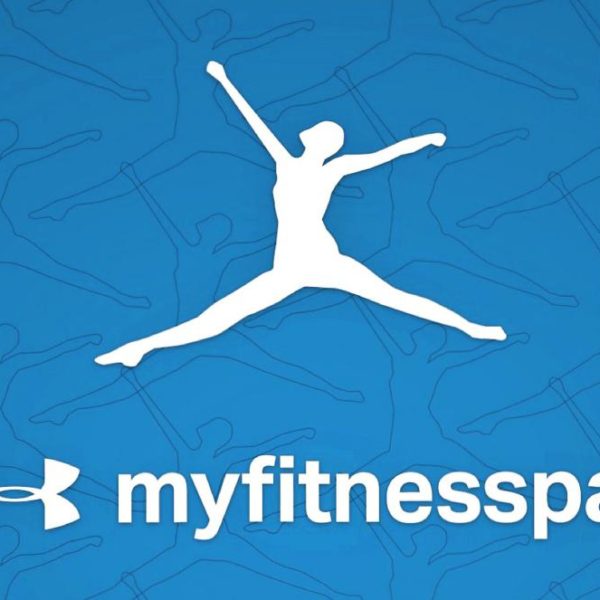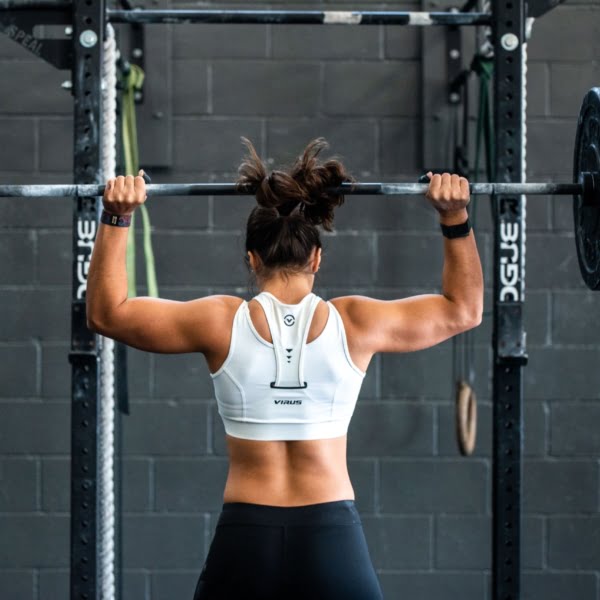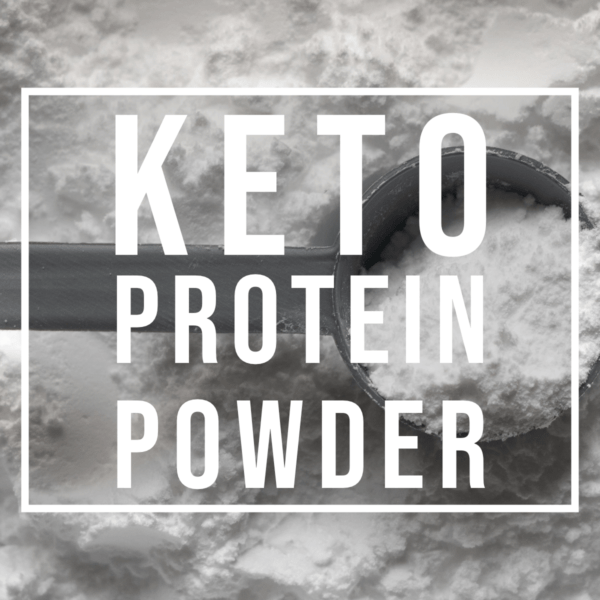Keto Electrolytes – Do you need supplements on keto?
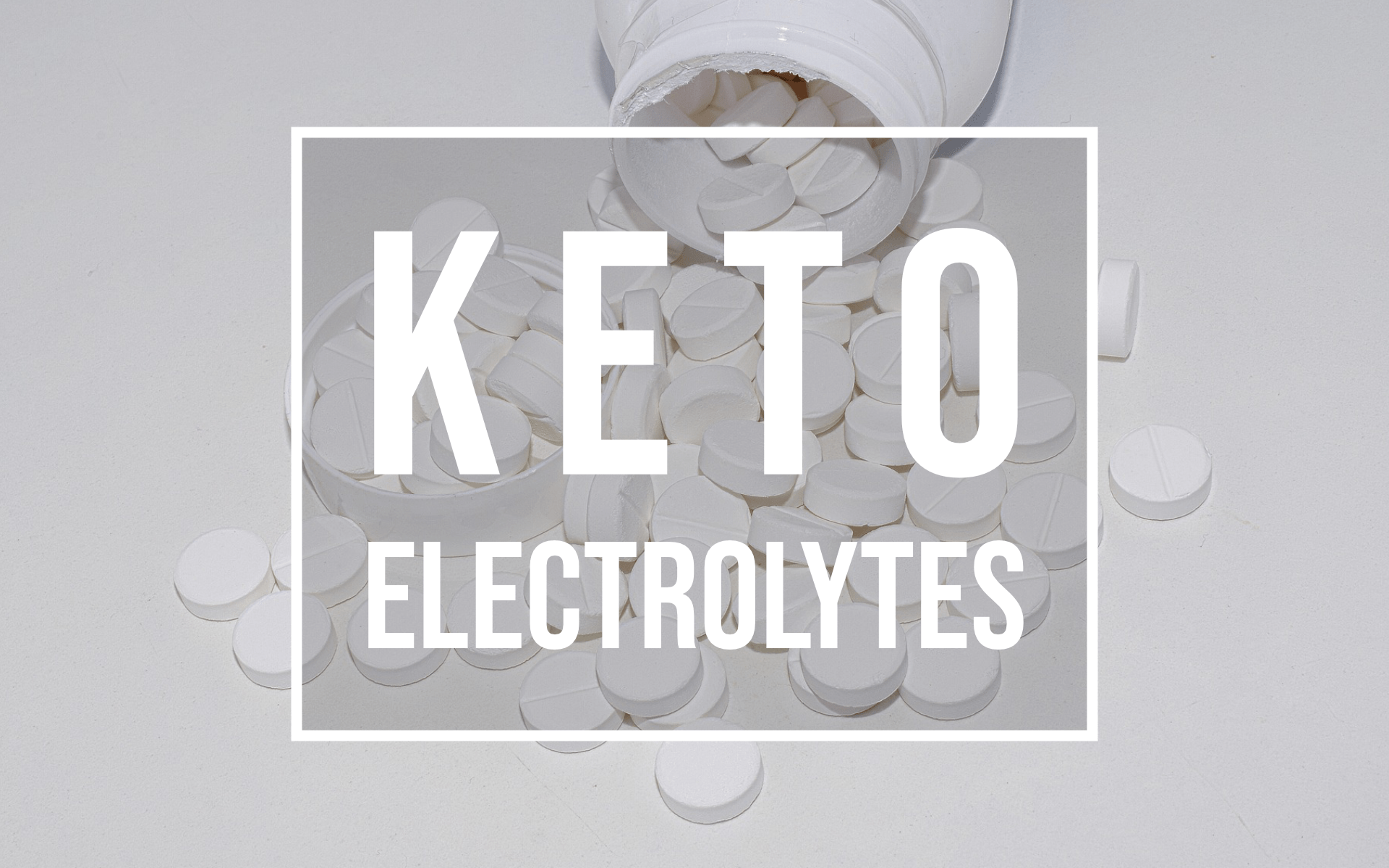
When you restrict your carb intake on the keto diet you may notice a few changes including some ill-effects such as the dreaded keto flu! As your body adapts to a low carb lifestyle, it alters the way you handle electrolytes and water. This can be combated by supplementing your electrolytes intake on keto, but should you? Read on to find out more.
What are electrolytes and their deficiency symptoms?
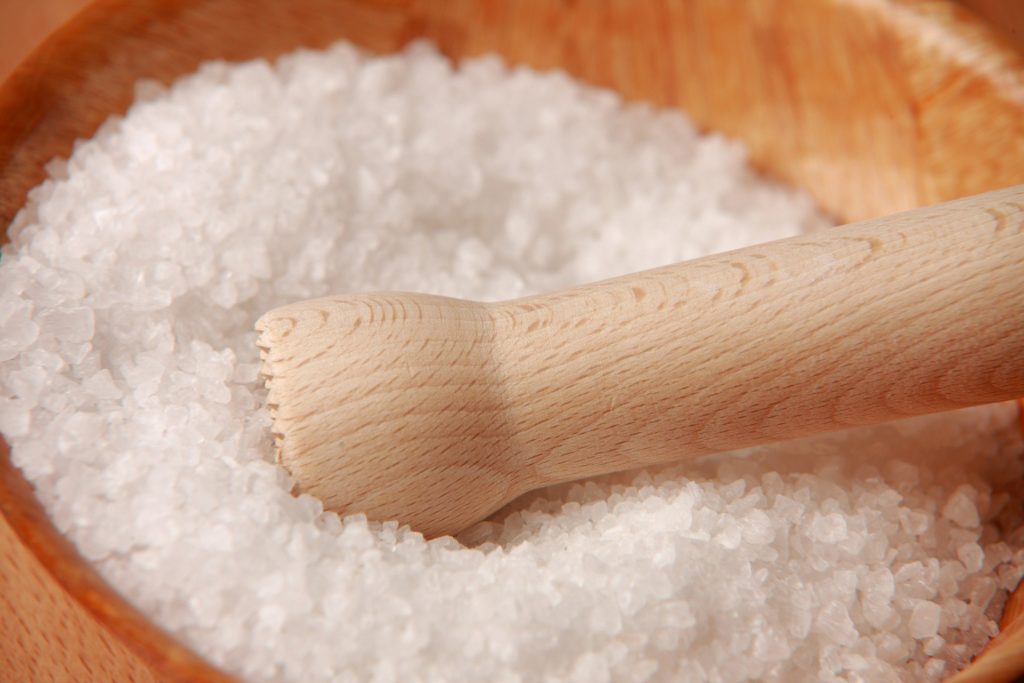
Electrolytes are natural minerals that are important for your body to function, without them, you would be in some serious trouble! These minerals help regulate your bladder, maintain heart health and muscle contractions, as well as aid in energy and brain functions (plus many more…).
So why is electrolyte deficiency common with the keto diet? Well, as you limit your carb intake, your body will produce less insulin and your glycogen stores will be depleted.
As these stores are emptied, your body will stop retaining water and begin to excrete it through your breath, sweat and urine.
If you’ve just started keto you might have noticed how you’re peeing a lot more! This is why. You will lose water weight which may sound great but your body is also excreting essential minerals and vitamins (electrolytes) along with the water.
Keto Flu

When you have an electrolyte deficiency, you may experience symptoms that make you feel terrible. If you’ve ever heard the term “keto flu” then you should know that that is usually due to low electrolytes in your body.
Symptoms of keto flu include:
- Bad sleep
- Brain fatigue/fog
- Sugar cravings
- Headaches
- General sluggishness/fatigue
- Irritability
- Weakness
- Muscle cramps/twitching
- Heart palpitations
As you can imagine, no one wants any of that. Each symptom is related to a particular mineral deficiency. Let’s take a closer look at the main electrolytes that may be low on the keto diet.
Electrolytes – The four main minerals
Electrolytes are found in all types of food and drinks and so long as you eat the right types of food you should be fine. However, on a keto diet, it can be difficult to know what you should be eating to make sure you get an adequate amount of each mineral.
There are four main minerals that we’ll focus on, we’ll take a look at what they do in the body, common deficiency symptoms and what you can do about it. Lastly, we’ll look at supplements and if it’s better to just take a tablet or solution to ensure you get the right amount every day.
Sodium
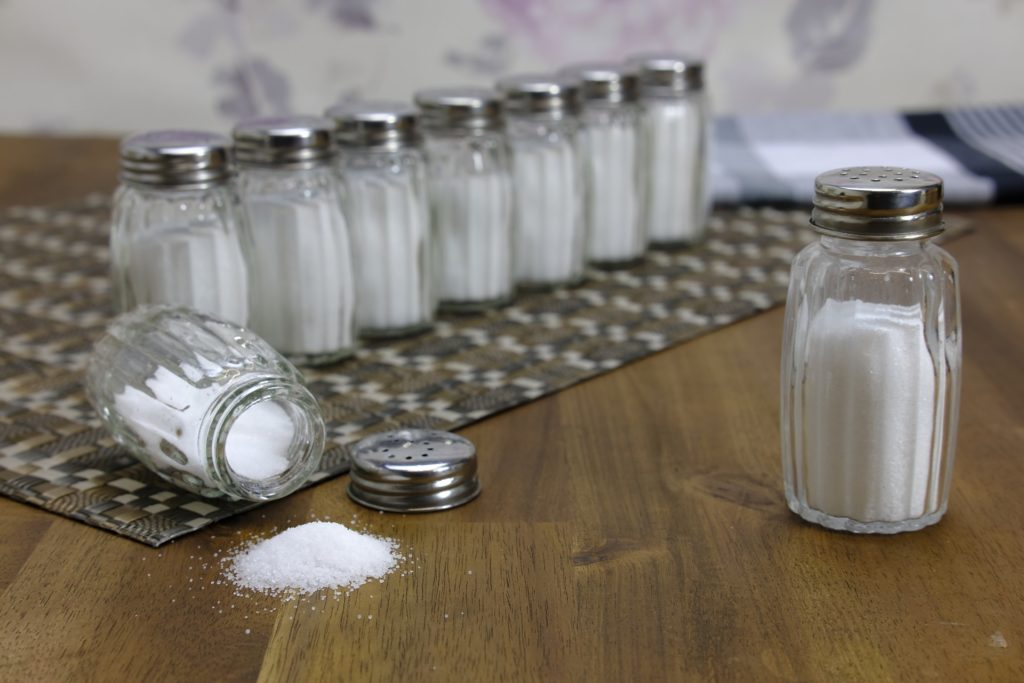
Too much salt is bad. You’ve probably heard that throughout your entire life, and is true if you’re on a standard western diet filled with processed carbs and loaded with sugar.
However, on keto, sodium is the most important electrolyte to monitor as it’s the first to go as you begin your keto journey. As your body excretes water, sodium goes with it.
Sodium chloride (commonly known as salt) is needed by the body to help keep the level of fluids in the body balanced. Chloride also helps the body digest food.
Most people on keto need around 3-7 grams of sodium per day. Note that salt is only about 40% sodium, the rest is chloride. So in a teaspoon of table salt, only just over a third of it is sodium.
Note – if you have a pre-existing medical condition such as kidney disease or hypertension, then you may need to be cautious on the amount of sodium you ingest. Always talk to your GP before making any drastic changes to your diet.
Symptoms
- Headaches
- General fatigue
- Weakness
Actions
Increase your salt intake. Sprinkle more on your meals and try to include some salty food like bone broth, stocks and salted butter.
Try switching to pink Himalayan salt, it contains mostly sodium chloride like normal table salt but also contains up to 84 other minerals and trace elements. They are in very small quantities so are probably not going to make much of a difference but it sure does look pretty. It’s these minerals (especially iron) that give it its pink colour.
Potassium
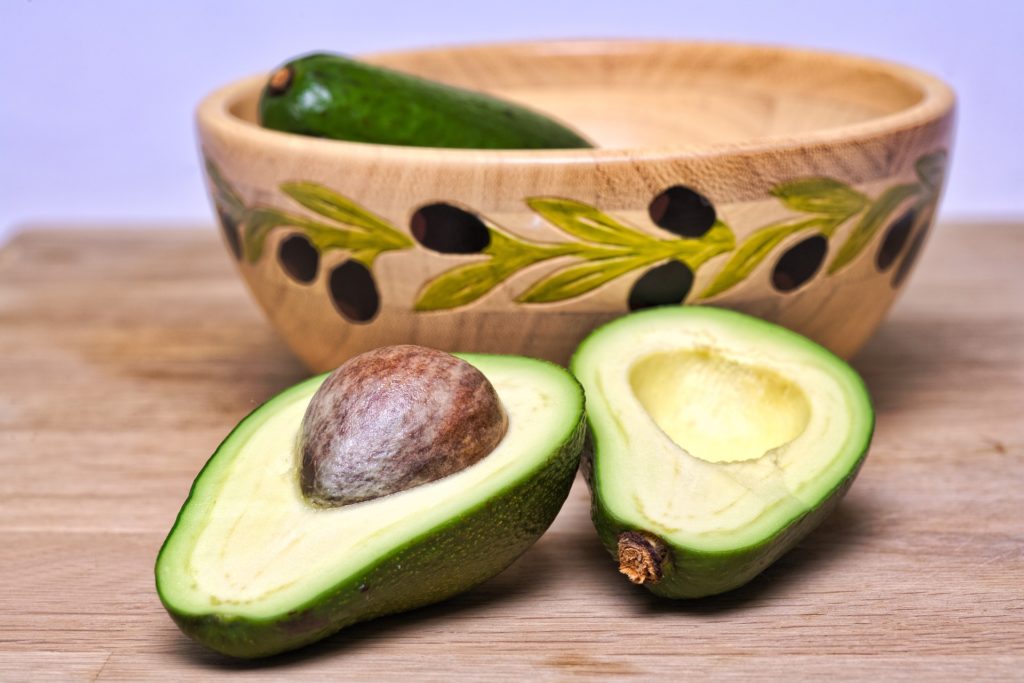
If you think of potassium then you’re probably also thinking about bananas. While it’s true that they contain potassium there are many other foods that contain it, some are even low carb.
Potassium plays a crucial role in the human body by helping to regulate your heartbeat and normalise blood pressure. However, too much potassium (a condition known as hyperkalemia) can be bad, as it can cause your heart to beat irregularly, which in the worst cases, can cause a heart attack.
On keto, the average person needs around 3,000 to 4,500mg of potassium per day. You can get that from about 4 medium-sized avocados.
Symptoms
- Muscle cramps/twitching
- Heart palpitations
Actions
Potassium can be found in many low carb foods such as avocado, spinach, mushrooms, Brussels sprouts, broccoli, salmon and almonds. Increasing your intake of these foods can help to ensure you get an adequate amount of potassium in your diet.
Magnesium
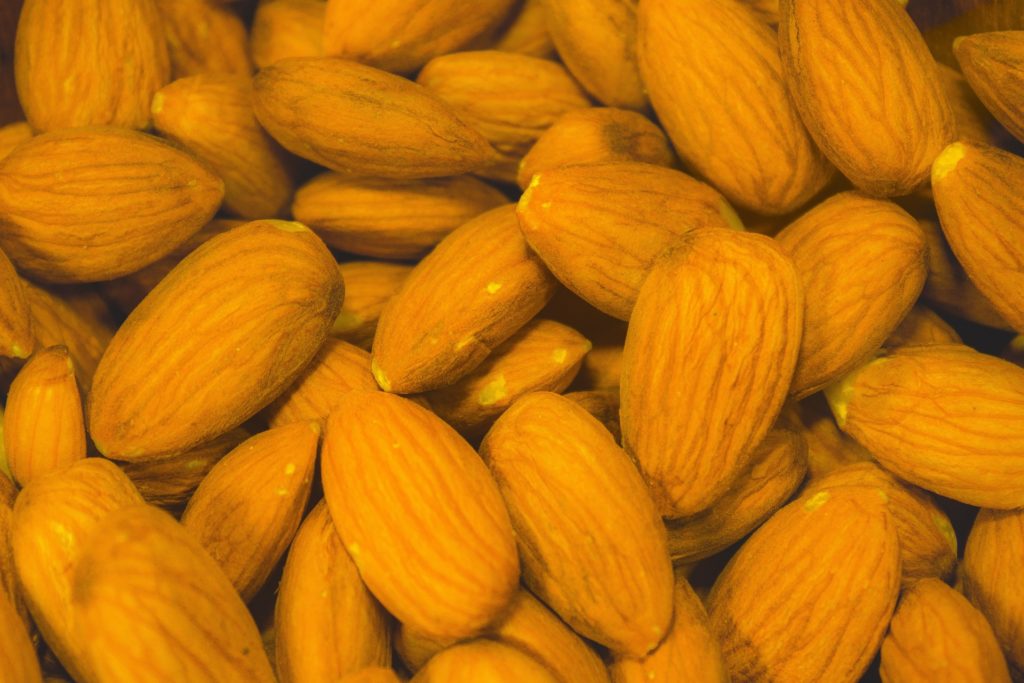
Magnesium helps to regulate hormones, muscle function, aid in sleeping and keep bones strong. It also helps to turn the food we eat into energy.
Studies have been conducted and it’s been suggested that many people don’t get enough magnesium from their diet alone (not just people on keto).
The typical recommended dosage is between 300-400mg per day. However, most foods are not that high in magnesium, though there are some keto-friendly foods that contain an adequate amount (see actions section for more).
Symptoms
- Muscle twitching/cramping
- Bad sleep
- Sugar cravings
- Constipation
Actions
Some nuts and seeds contain a good amount of magnesium. Adding a handful of any of the following to your diet can help ensure you get a good dosage – Hemp seeds, pumpkin seeds, chia seeds, almonds and pine nuts.
Alternatively, you could try eating some mackerel, dark chocolate (80% and higher), spinach, avocado and artichoke.
Calcium
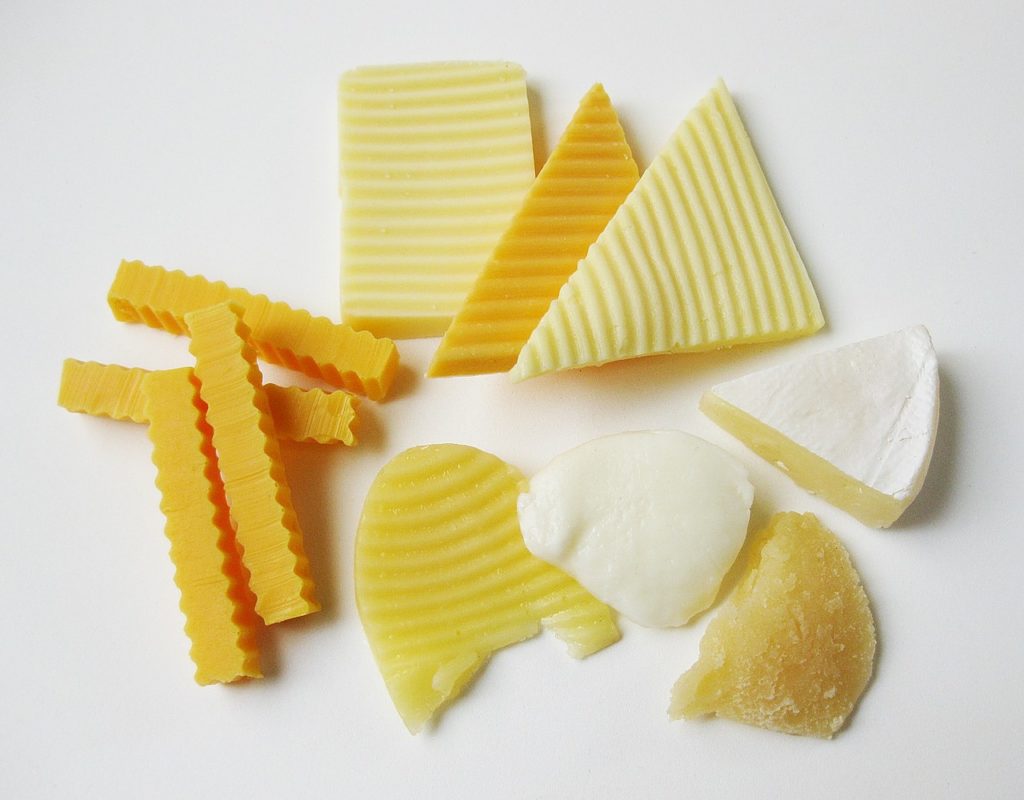
Calcium helps make your bones grow big and strong! I’m sure we’ve all seen the adverts and most know that you can it from dairy milk. Of course, on keto, dairy milk is not advised as it contains quite a few carbs.
As well as helping to build strong bones & teeth, calcium also helps to maintain proper muscle and nerve functioning and ensure your blood clots correctly. The daily recommended intake is 700mg per day. You should be able to get this directly from low carb foods without a need for a supplement.
Symptoms
- Cramping
- Tiredness
- Low energy
- Bleed easily after sustaining an injury – a bit odd, but yes, low calcium levels can affect how quickly your blood clots.
Actions
It should be quite easy to get all your daily calcium requirements from low carb foods including – cheese, nuts, green leafy vegetables (broccoli, cabbage), salmon, sardines and even tofu.
Keeping up your water intake
Thirsty? Drink some water. As mentioned earlier, as your body adapts to a low carb diet, water will be excreted at a higher rate than normal, so you need to replenish the supply.
If you’re not sure you’re drinking enough water, take a look at your urine next time you answer the call of nature. Check the colour of your urine, if it’s light yellow or clear then you’re probably adequately hydrated.
However, if it’s a darker yellow then you’re probably dehydrated. In that case, you should perhaps consider increasing your water intake.
Taking supplements on keto
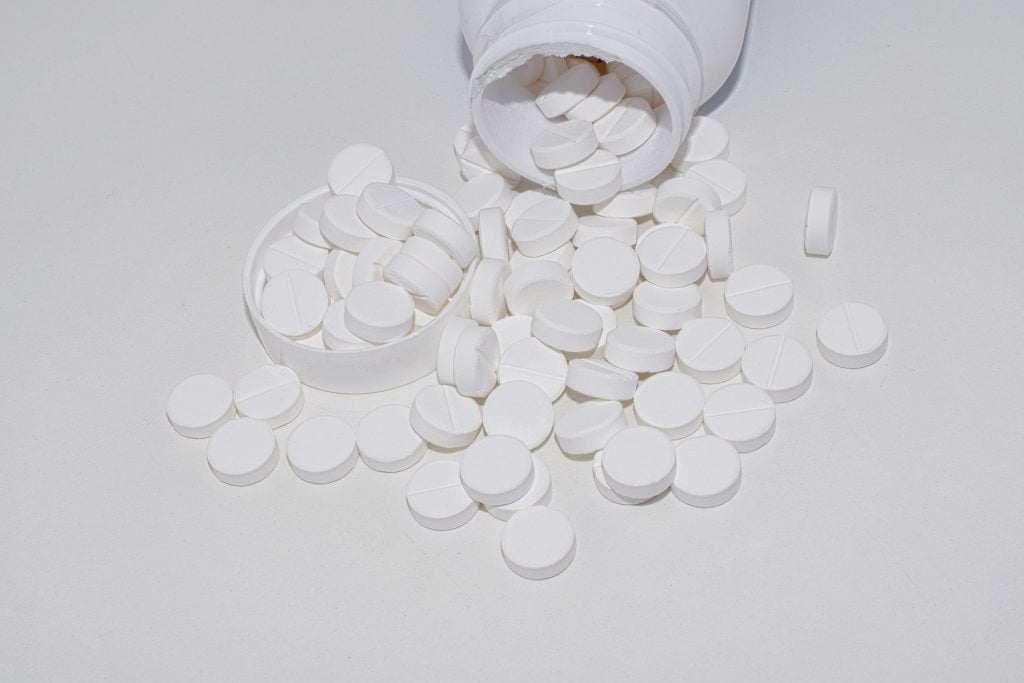
If you’re very active or don’t eat enough foods rich in the four main electrolytes, then it may make sense for you to take electrolyte supplements on keto.
Supplements come in a variety of forms from tablets to powders and can help to ensure you get the right amount of minerals in your diet.
You will likely need to consume a serving every day, some people will continue this for the rest of their keto journey. Whereas others will fade out supplement use in favour of eating high-mineral containing food or until they no longer experience any of the ill-effects.
Product recommendations
There are many supplements that are great for ensuring you get the electrolytes you need while on keto. Best of all, you don’t need to break the bank while you’re at it.
Tablets
Tablets tend to contain the highest concentration of electrolytes that you need on the keto diet. The average serving size is 2 tablets per day and can be taken whenever. However, some prefer to take supplements containing magnesium in the evening as it can aid with sleeping.
Great for – ease of use, speed of uptake and cost
Not great for – people who hate taking pills
MyProtein Electrolytes Plus Tablets

Available at: Amazon, MyProtein
Pack size: 180 tablets, 90 days
Serving: 2 tablets daily, best taken with food & liquid.
Nutrition per serving:
- Potassium – 400mg
- Sodium – 200mg
- Chloride – 320mg
- Calcium – 200mg
- Magnesium – 100mg
Optimum-FX Keto Electrolytes Tablets
![Keto Electrolyte Supplement [180 Capsules | Extra Strength]](https://addtoketo.co.uk/wp-content/uploads/2020/08/image-1.png)
Available at: Amazon
Pack size: 120 tablets, 60 days
Serving: 2 tablets daily, best taken with food & liquid.
Nutrition per serving:
- Potassium – 400mg
- Sodium – 200mg
- Chloride – 320mg
- Calcium – 200mg
- Magnesium – 100mg
- Vitamin C – 170mg
Dispersible tablets
Add to water to enjoy a nice drink. Most are flavoured with sweeteners but may contain some carbs. They also contain a lot fewer minerals than tablets so are good if you already eat quite nutrient-rich food.
Great for – people who hate pills, want an enjoyable drink
Not great for – cost, can be expensive and not as mineral rich as tablets
High5 Zero Electrolyte Hydration Tablets

Available at: Amazon, Holland & Barrett
Pack size: 20 tabs, 20 days. You can increase the quantity to two per serving to up the number of minerals per serving.
Serving: 1 tablet a day mixed with water
Nutrition per serving (based on 1 tablet):
- Potassium – 70mg
- Sodium – 250mg
- Calcium – 9mg
- Magnesium – 56mg
- Green tea – 1mg
- Vitamin C – 28mg
Other flavours – Citrus, Berry, Pink Grapefruit, Tropical, Neutral, Orange and Cherry
Powders
You can purchase electrolytes in powder form that can be mixed with any drink of your choice, commonly water or even as part of a protein shake.
Great for – mixing with other drinks and foods
Not great for – cost, can be expensive and can add a slightly salty taste to whatever it goes with. Some powders can also lack sufficient amounts of minerals per serving.
Rival Sports Fuel Electrolyte Powder

Available at: Amazon
Pack size: 250g, 312 servings
Serving: 1 scoop (800mg)
Nutrition per serving:
- Potassium – 255mg
- Sodium Chloride – 426mg
- Calcium – 78mg
- Magnesium – 39mg
Bulk Powders Electrolyte Powder
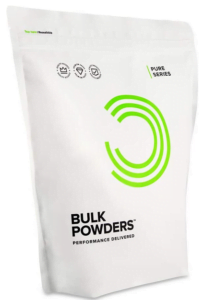
Available at: Amazon, Bulk Powders
Pack size: 500g, 500 servings
Serving: 1 scoop (1g)
Nutrition per serving:
- Potassium – 77mg
- Sodium Chloride – 260mg
- Calcium – 47mg
- Magnesium – 7.5mg
Note – The Bulk Powders Electrolyte powder contains very small quantities of minerals, so you may need to increase the serving size to get your daily recommended intake of electrolytes.
Home-made remedies
Don’t want to take tablets or pay the increased cost for ease of use? Why not make your own electrolyte solution at home with some common ingredients.
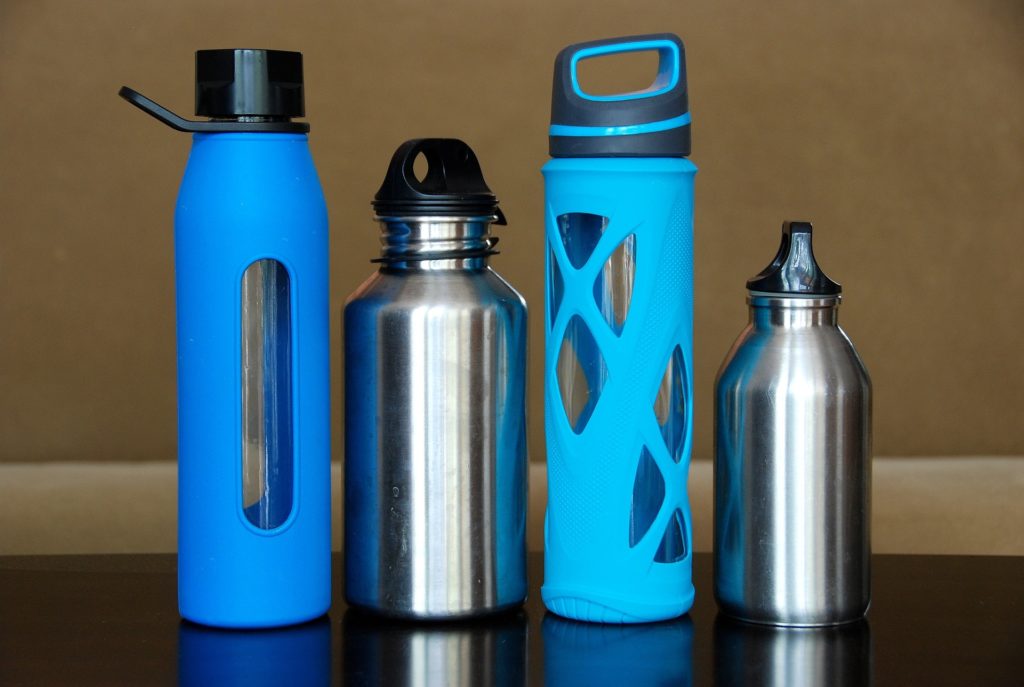
Note – it’s not going to taste great on its own unless you like salty drinks. Some liken it to slurping on brine that you find in tuna cans! You can always add some sugar-free squash to help with the flavour.
Ingredients
Sodium – 1/4 tsp Himalayan pink salt (or normal table salt)
Magnesium – 1/4 tsp Epsom salts (Food grade)
Potassium – 1 tsp No Salt (increase to 2 tsp as needed)
750ml Water
Directions
If not already done, grind any salts to a fine consistency.
In a large water bottle, add the water and salts together. Mix well and drink throughout the day. You can add flavours to mask the salty goodness like low carb fruit squash (check out our article here).
Tips
Give it a shake before every sip just to make sure the salts haven’t settled to the bottom.
Try not and drink it all in one go as that may trigger a salt flush, resulting in a few trips to the toilet.
It’s best to start off with just 1 tsp of No Salt and increase gradually over time to 2.5 tsp to avoid any unwanted bathroom visits.
Conclusion
So should you take an electrolytes supplement while on keto?
If you experience any of the symptoms mentioned above, then it may well be a good idea. You have two options – either try and get your minerals from natural food sources or take a supplement (tablet, powder or as a drink). The choice is yours!
